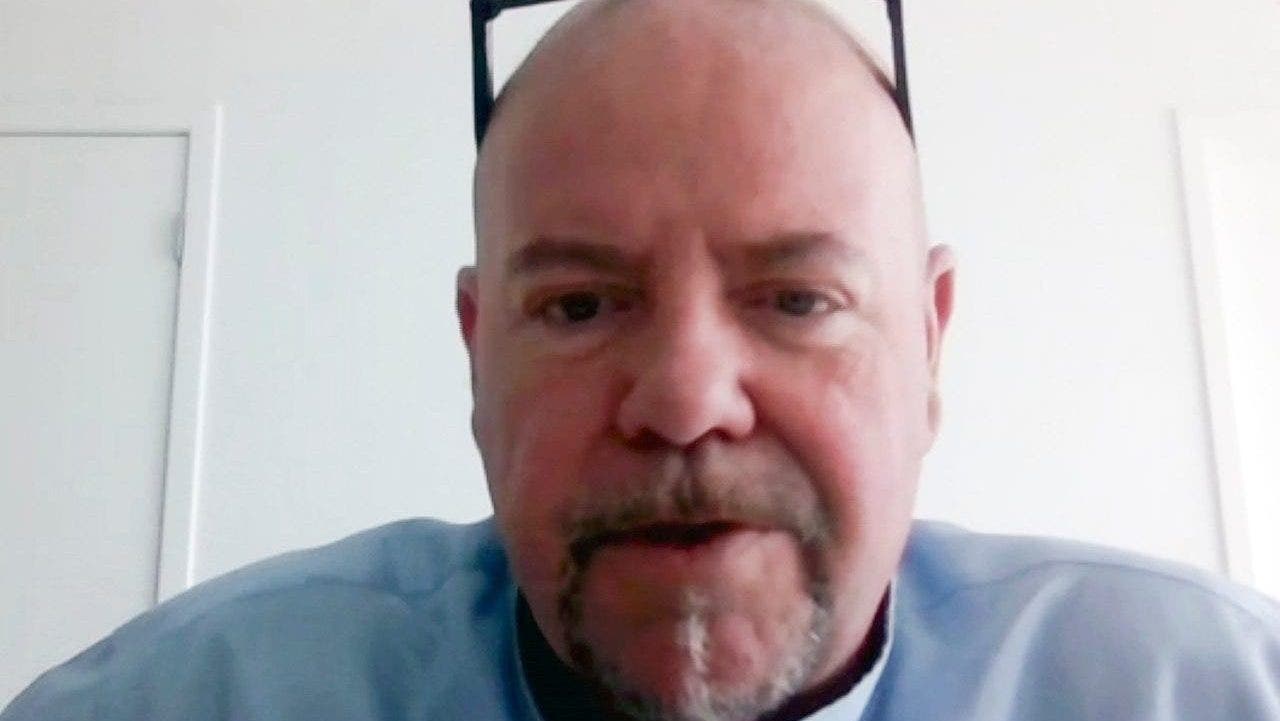Pennsylvania
To reduce hospital staffing shortages, Pennsylvania to allow out-of-state nurses to practice

Nurses with multi-state licenses issued by 40 states will be able to practice in Pennsylvania this fall as part of an effort to address an ongoing workforce shortage, the Department of State said Tuesday.
Beginning Sept. 5, registered nurses and licensed-practical nurses from states that are part of the Nurse Licensure Compact will be able to work in Pennsylvania without needing to obtain a Pennsylvania license. The NLC allows RNs and LPNs licensed in one compact state to work in the others.
Previously, all nurses needed to obtain a license from the state’s Board of Nursing to practice in Pennsylvania. That process can take several months, has left nurses exhausted and contributes to hospital staffing shortages.
New Jersey, Delaware, Maryland, Ohio and West Virginia are NLC members.
Though nurses from other NLC states can begin practicing in Pennsylvania early next month, nurses from Pennsylvania will not immediately be able to work in other states. Before the Board of Nursing can begin issuing multi-state licenses to Pennsylvania nurses, it must certify that it has performed FBI criminal background checks on its applicants, a process that requires FBI authorization. There is no timeline for when that will be completed.
“The Shapiro administration is committed to ensuring that Pennsylvanians can receive top-notch care from licensed, qualified health care professionals,” Secretary of the Commonwealth Al Schmidt said. “By implementing this first phase of Pennsylvania’s engagement in the NLC, we are expanding opportunities for patients and providing hospitals with access to an approved, vetted group of licensed RNs and LPNs.”
Pennsylvania has been working to become an active NLC member since July 2021, when Gov. Tom Wolf signed legislation allowing the state to join the compact.
But the law lacked language that the U.S. Department of Justice and the FBI needed to conduct and submit criminal background checks, which has stalled its execution, the Morning Call reported. The delay led to frustration among out-of-state nurses that came to Pennsylvania without realizing they still needed to apply for state certification.
By joining the NLC, Pennsylvania seeks to increase the number of nurses working in the state, thereby improving health care.
A 2022 survey from the Hospital and Healthsystem Association of Pennsylvania found that 30% of registered nurse positions in direct care went unfilled, a 10% increase from 2019. Another report by the same organization found Pennsylvania could have a shortfall of 20,000 nurses by 2026.
This shortage has persisted since the COVID-19 pandemic, despite Pennsylvania having one of the largest concentrations of registered nurses in the country. Pennsylvania has about 100 nursing schools that graduate about 9,000 nurses per year.
A survey conducted earlier this year by AMN Healthcare Services, Inc. found that nearly one-third of nurses are considering leaving the profession in the aftermath of the COVID-19 pandemic. The bulk of the 18,000 nurses surveyed said they were seeking increased salaries or better working conditions to help manage their stress.
“It’s critically important that we do everything we can to alleviate the hospital staffing crisis that is driving RNs from the bedside and imperiling patient care in every corner of our state,” said Maureen May, president of the Pennsylvania Association of Staff Nurses and Allied Professionals. “By drawing more nurses to (Pennsylvania), the Nurse Licensure Compact will help ensure that, at this very critical time, our hospitals are amply staffed and that our nurses are able to give the care they want and have been trained to give.”
In the wake of the COVID-19 pandemic, Pennsylvania waived some licensing requirements for health care providers, including nurses. Retired physicians, nurses and pharmacists could reactivate their licenses through the end of 2020 at no cost. In late 2021, the Federal Emergency Management Agency sent strike teams to the Pennsylvania hospitals hit hardest by COVID-19 to ease the strain on overburdened facilities.
In June, the Pennsylvania House passed the Patient Safety Act, which specifies the number of patients that can be cared for by one nurse in different health care settings. If it’s passed by the Senate and signed into law by Shapiro, Pennsylvania would be among the first states to enact specific staffing-level requirements for nurses in hospitals.
Though some hospital leaders have opposed the bill, saying it will further exacerbate the nursing shortage, supporters like Linda Aiken, the director of the Center for Health Outcomes at the University of Pennsylvania, told the Inquirer that Pennsylvania’s participation in the NLC will address that issue by bringing more nurses to the state.

Pennsylvania
Man charged with murder in fatal shooting at Pennsylvania linen company

A man has been charged with murder Thursday after a shooting left 2 dead and 3 others injured in what prosecutors described as a “cold-blooded” attack at a linen company near Philadelphia.
Wilbert Rosado-Ruiz, 61, has been charged with two counts of homicide, multiple counts of aggravated assault, reckless endangerment, and a firearms charge, according to Delaware County District Attorney Jack Stollsteimer. He was scheduled to be arraigned Thursday afternoon, Stollsteimer said.
Rosado-Ruiz was charged in connection to a shooting that occurred Wednesday morning at Delaware County Linen in Chester, a city south of Philadelphia. The family-owned company was founded in 1988 and provides linen rental and laundering services to businesses in southeastern Pennsylvania and surrounding states, its website said.
Stollsteimer said the shooting appeared to stem from a dispute between Rosado-Ruiz and a female colleague. It was unclear what led to the dispute between the suspect and his co-worker, authorities said.
Two brothers, identified as Leovanny Pena Pena and Giguenson Pena Pena, were killed and three others — including the colleague involved in the dispute — were wounded, authorities said. As of Thursday afternoon, two of the surviving victims were listed in stable condition while one was in critical condition but stable.
“This is a horrible, horrible event (that) should never happen,” Stollsteimer said at a news conference Thursday. “As I said yesterday, (shootings happen) too often in America. It could have happened in any community but it happened, unfortunately, here in the city of Chester.”
Ohio shooting: 3 killed, 3 others wounded following ‘chaotic’ shooting in Ohio; suspect at large
Gunman ‘methodically’ walked around, shooting victims
The shooting happened at about 8:30 a.m. and Chester Police Commissioner Steven Gretsky said officers arrived at a “very chaotic scene.” They found one man dead outside the business entrance and another dead inside.
According to Stollsteimer, surveillance video showed Rosado-Ruiz arriving at the business and having a verbal altercation with a female employee. He then went outside to make a phone call, returned with a gun, and opened fire.
“He methodically walked around the floor of the business,” Stollsteimer said.
The female colleague was the first victim in the incident and left the building after she was shot, according to Stollsteimer. As Rosado-Ruiz was leaving the building, he noticed the woman and fired several more shots but either misfired or ran out of ammunition, Stollsteimer added.
Rosado-Ruiz then fled from the scene but was soon taken into custody after an officer from nearby Trainer, Pennsylvania, heard the vehicle description and stopped the car, Gretsky said.
Stollsteimer added that although Rosado-Ruiz legally owned the gun that was used in the shooting, he faced a weapons charge because he did not have a license to carry a concealed weapon.
Latest workplace shooting in U.S.
There have been at least 168 mass shootings in the country so far this year, according to the Gun Violence Archive, which tracks gun violence incidents. The organization defines mass shootings as shootings in which at least four people have been shot, not including the shooter, regardless of whether they die.
Mass killings, as defined by a tracker from USA TODAY, Northeastern University, and the Associated Press, include incidents in which four or more people, excluding the offender, are killed within a 24-hour time frame. There have been 15 such killings in 2024, according to the tracker.
The Chester, Pennsylvania, shooting is also the latest incident of workplace violence carried out by disgruntled workers or former employees. Assault is the fifth-leading cause of workplace deaths, according to the National Safety Council.
Between 2021 and 2022, the public service organization counted over 57,600 injuries. In 2022, there were 525 fatalities reported due to assault.
Last year, seven people were killed in two related shootings in Half Moon Bay, California, in what authorities described as an “instance of workplace violence.” In June 2022, three people were killed and three others injured — including the gunman — at a Maryland manufacturing facility.
About five months later, a gunman, who a witness said was targeting co-workers, killed six people at a Walmart in Virginia. In 2021, a former employee at a FedEx facility in Indiana killed eight people.
Though multiple workplace killings by employees have occurred in recent years, experts have said these incidents are comparatively rare when looking at all U.S. mass killings, USA TODAY reported in 2022.
“In terms of workplace homicides, most are actually committed not by employees,” James Alan Fox, a criminologist and professor at Northeastern University, previously told USA TODAY.
Contributing: Jeanine Santucci and Nada Hassanein, USA TODAY
Pennsylvania
Pennsylvania lawmakers question secrecy around how abuse or neglect of older adults is investigated – Metro Philadelphia

Pennsylvania Gov. Josh Shapiro speaks with members of the media during a news conference in Yardley, Pa., Monday, Dec. 4, 2023.
AP Photo/Matt Rourke
By MARC LEVY Associated Press
Pennsylvania lawmakers want Gov. Josh Shapiro’s Department of Aging to disclose more about the shortcomings it finds when it evaluates whether county-level agencies are properly investigating complaints about the abuse or neglect of older adults.
The effort comes as Republican state lawmakers have pressed Shapiro’s administration to do more to investigate the deaths of older adults who are the subject of an abuse or neglect complaint after Pennsylvania recorded a steep increase in such deaths.
Rep. Louis Schmitt, R-Blair, introduced legislation Wednesday requiring the department to publish the compliance status of each of the 52 county-level agencies that it’s supposed to inspect annually, and to publish a report on the findings.
“The public needs to know. The public deserves to know. The public has a right to know,” Schmitt said in an interview. “You cannot hide if you’re going to conduct public business, especially public business that affects the health and safety and welfare of seniors in Pennsylvania.”
The department told lawmakers earlier this year that it had deemed seven of the agencies to be noncompliant. The year before that, 13 were noncompliant when lawmakers asked.
In a statement, the Department of Aging said it looked forward to working with Schmitt. The department said it expects to introduce a new performance evaluation process beginning in June and will post results on its website.
The department has recently declined requests by The Associated Press for two sets of documents: one in which the department outlines to county-level agencies the shortcomings it found and another in which the county-level agency must explain how it will fix those shortcomings. The department, under Shapiro’s predecessor, former Gov. Tom Wolf, had provided such documents unredacted to the AP.
Those refusals come after a January evaluation of Philadelphia’s agency found that its protective services bureau had improperly handled 16 — or one-third — of 50 closed cases that were picked at random for the review.
The details of complaints, investigations and the identity of the person whose situation is in question are kept secret.
The Philadelphia Corporation For Aging declined to comment. A letter the department sent to the agency didn’t describe the problems or how the agency planned to fix them.
Asked about the fate of the 16 adults, the department said none of their cases “required a referral to law enforcement or a report to the coroner’s office.”
The department also said it is taking steps to help the Philadelphia agency, including by encouraging the agency to seek out a broader pool of applicants for caseworkers and supervisory staff and expanding training.
The department has contracts with 52 county-level “area agencies for aging” — nicknamed triple As — across Pennsylvania to field and investigate abuse and neglect complaints and, ultimately, ensure the older adult is safe and connected to the appropriate social services. Some are county-run and some are privately run.
Sheri McQuown, a protective services specialist who left the Department of Aging last year after almost seven years, said there is no reason the department cannot publish the findings from its evaluations and the local agencies’ corrective action plans.
“The public should know what they’re paying for, what they’re getting for their money, and older adults should know which triple As are effective and which are not,” McQuown said.
How the Philadelphia agency handles complaints has stoked repeated concerns. At one point, the state stepped in to handle investigations.
McQuown questioned whether the Department of Aging has the spine to hold the county-level agencies accountable. High numbers of deficiencies has long been the norm for Philadelphia and some other agencies, she said.
The county-level agencies do not always comply with state requirements that limit caseworkers’ caseloads, set deadlines to resolve cases and set timelines within which caseworkers must promptly see potential victims.
The agencies also decide which complaints to investigate, and state data has long shown disparities between the agencies in how often they deemed a complaint to be worthy of action.
Pennsylvania
New Casey campaign coalition puts focus on senior voters in Pennsylvania • Pennsylvania Capital-Star

Democratic U.S. Sen. Bob Casey’s campaign is launching a new initiative aimed at courting older voters who reliably show up at the polls and who may prove pivotal in races up and down the ballot in 2024.
First shared with the Capital-Star, the “Seniors for Casey” coalition has more than 100 seniors across the commonwealth, including former Gov. Ed Rendell, former Philadelphia Mayor John Street, and former International Vice President of SEIU Rosemary Trump.
His campaign told the Capital-Star that showing up for seniors in Pennsylvania is a top priority for Casey and touted his record of advancing legislation that benefits seniors.
“This coalition will help ensure his priorities for seniors are shared throughout the state from now until election day through events, outreach, organizing, and conversations within their communities,” Maddy McDaniel, spokesperson for Bob Casey for Senate, told the Capital-Star. “Senator Casey has championed seniors’ issues throughout his time in the Senate and this coalition is just another way he is centering them in his work.”
Casey, who is seeking a fourth term in the U.S. Senate serves as the Chairman of the Special Committee on Aging. His campaign points to Casey’s efforts on lowering costs, protecting seniors from scams and financial exploitation, holding long-term care facilities accountable, and protecting Social Security and Medicare. He’s also been endorsed by the National Committee to Preserve Social Security & Medicare, a left-leaning advocacy group.
Social Security in ‘a full blown crisis,’: Advocates and recipients say the program needs help
Seniors have been a key part of Casey’s reelection in the past, but recent polling suggests that he is running neck-and-neck with Republican challenger David McCormick among this group of voters. An AARP Pennsylvania statewide election survey released on May 7 showed Casey leading McCormick by 4 points among voters 18 and over, and McCormick with a 1 point advantage over Casey with voters 50 and older.
During Casey’s most recent reelection in 2018 over then-GOP U.S. Rep. Lou Barletta, Casey won voters 50-64 by 5 points and defeated Barletta with voters 65 and older by 17 points. He won the election by 13 points overall.
Pennsylvania has one of the largest senior populations among battleground states. And Casey is not the only candidate for office seeking to secure a win among older voters. Bloomberg reports President Joe Biden’s campaign has been courting this group of voters by organizing bingo games in key states and running ads during shows with a large senior viewing audience, such as the Price is Right.
-

 World1 week ago
World1 week agoPro-Palestinian university students in the Netherlands uphold protest
-

 Politics1 week ago
Politics1 week agoDem newcomer aims for history with primary win over wealthy controversial congressman
-

 Politics1 week ago
Politics1 week agoSouthern border migrant encounters decrease slightly but gotaways still surge under Biden
-

 World1 week ago
World1 week agoSlovakia PM Robert Fico in ‘very serious’ condition after being shot
-

 Politics1 week ago
Politics1 week agoWhite House walks diplomatic tightrope on Israel amid contradictory messaging: 'You can't have it both ways'
-

 World1 week ago
World1 week agoCanadian Nobel-winning author Alice Munro dies aged 92
-

 News1 week ago
News1 week agoDespite state bans, abortions nationwide are up, driven by telehealth
-

 Politics1 week ago
Politics1 week agoVulnerable Dem incumbents move to the center in key swing states as Biden panders to far-left base

















